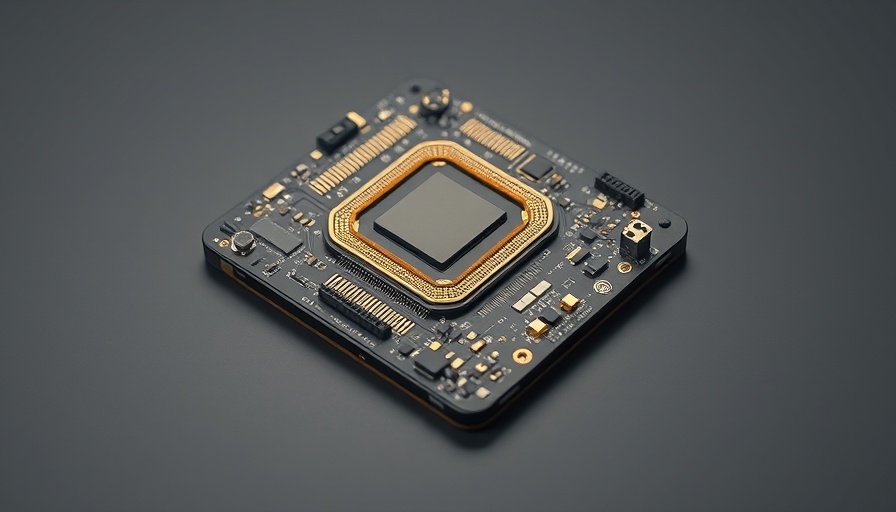
Revolutionizing Quantum Computing: Microsoft’s Majorana 1 Processor
Microsoft has announced a groundbreaking development in quantum computing with its new Majorana 1 processor, which leverages a novel class of qubits known as topological qubits. This advancement could potentially transform the landscape of quantum computing, positioning Microsoft ahead of its competitors in the race for scalable, practical quantum technologies.
What are Topological Qubits?
Topological qubits represent a significant advancement over traditional qubits, which are prone to noise and decoherence. This innovative approach is based on Majorana particles, exotic entities theorized nearly a century ago, and involves a new type of material called a topoconductor, which stabilizes the qubit state against external interference. For decision-makers interested in the future of technology and its implications, understanding these qubits is crucial as they promise enhanced reliability in quantum computations.
Scaling Up: A Million Qubits
The design capabilities of the Majorana 1 processor are impressive; it can potentially accommodate up to one million qubits on a single chip, far surpassing the capabilities of existing quantum processors. This scalability is a critical aspect as industries look to apply quantum computing in areas like drug discovery, cryptography, and complex system simulations, making this technology a valuable asset for organizations aiming for innovation in their respective fields.
The Road Ahead: Overcoming Challenges
While the Majorana 1 processor is heralded as a significant step forward, it is important to note that the journey toward practical quantum computing is fraught with challenges. Microsoft's roadmap outlines various milestones, including the development of fault-tolerant prototypes and effective quantum error correction systems—a vital area for ensuring that quantum computations are both accurate and reliable.
Insights from DARPA: A Gateway to Utility-Scale Quantum Computing
Microsoft's selection by DARPA for the final phase of its Underexplored Systems for Utility-Scale Quantum Computing (US2QC) program solidifies its position as a leader in the quantum field. This recognition is pivotal as it indicates that Microsoft’s approach to building a fault-tolerant quantum computer is not only plausible but expected to materialize within a reasonable timeframe. This progress aligns with a broader movement toward integrating quantum technologies into practical applications that could address some of the world’s most pressing challenges.
Why This Matters to Your Business
For executives and senior managers, understanding the potential of quantum computing is vital for strategic planning. As quantum technologies mature, their ability to tackle problems beyond the reach of classical computers presents new avenues for innovation and efficiency. Quantum computing could redefine industries, from healthcare and finance to energy and supply chain management. Staying informed about these technological advancements will position companies to leverage quantum computing as it becomes more mainstream.
As we witness these technological breakthroughs, decision-makers must consider how they might integrate quantum capabilities into their operational strategies and prepare for a future where quantum computing plays a vital role in competitive advantage.
 Add Row
Add Row  Add
Add 




Write A Comment